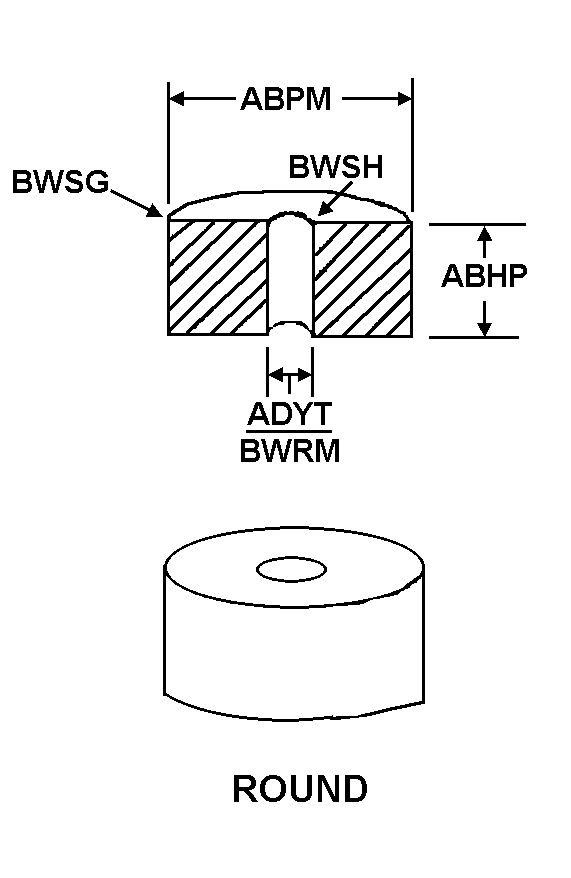5365011782205
Price Quote Get an up to date pricing and availability quote for this product. Order online or over the phone.
Quality Commitment
Serving our customers with quality and safety first.
- AS9120 Certified
- Audited supply chain
- ITAR Registered
- DDTC Registered
- HAZMAT Certified
- Customer service objectives
- Every product 100% inspected

5365-01-178-2205 Specification Set by the OEM (see RNCC code 3)
55.0 shore durometer a and 65.0 shore durometer a
0.219in. and 0.281in. ⁓9/32"
0.500in.
0.312in.
single centrally located hole
color black
rubber polyisoprene natural class nr or rubber BUTADIENE-Styrene class sbr or rubber ISOBUTYLENE-Isoprene class iir or rubber ETHYLENE-PROPYLENE-Diene class epdm or rubber polyisoprene synthetic class ir
astm D2000, grade 1BC610 assn std single material response
round
Cross Reference Parts Part numbers that meet the specification outlined on this page and set by the OEM
Identification Item Identification Guide (IIG) and Item Name Code (INC)

Definition Definition of approved item name (AIN): "BUSHING,NONMETALLIC"
An item, made of rubber or plastic, usually cylindrical, with or without a flange, having one or more holes extending through its entire length, usually parallel to its axis. The overall length must exceed 25 percent of its diameter or a distance across the peripheral flats for items without a flange. For items formed of other material see bushing, sleeve. Excludes bumper, nonmetallic and grommet nonmetallic.
5365-01-178-2205 Material Hazmat, Precious Metals, Criticality, Enviroment, and ESD
Indicates there is no data in the hmirs and the nsn is in a fsc not generally suspected of containing hazardous materials.
Item does not contain precious metal.
The item does not have a nuclear hardened feature or any other critical feature such as tolerance, fit restriction or application.
Identification Codes
HMIC: Hazardous Material Indicator Code. A one position code that identifies a hazardous item.
PMIC: Precious Metal Indicator Code. A one position code which identifies items that have precious metals as part of their content. precious metals are those metals generally considered to be uncommon, highly valuable, and relatively superior in certain properties such as resistance to corrosion and electrical conductivity.
ESD: Electrostatic Discharge. Indicates if an item is susceptible to electrostatic discharge or electromagnetic interference damage. electrostatic discharge damage occurs when an accumulation of static electricity generated by the relative motion or separation of materials is released to another item by direct contact. electromagnetic interference damage occurs when an item comes into proximity with an electrostatic or magnetic field.
ENAC: Enviromental Attribute Code. Identifies items with environmentally preferred characteristics.
CRITL: Criticality Indicator Code. Indicates an item is technically critical by tolerance, fit, application, nuclear hardness properties, or other characteristics.






